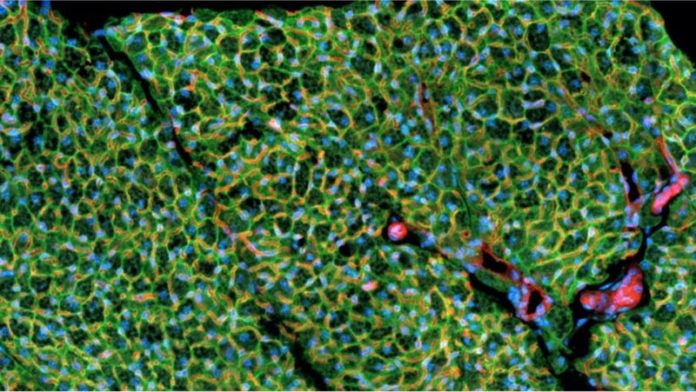
In the race to find a safe and effective weight loss drug, much attention has focused on the chemical processes that store and use energy. But a new mouse study from Johns Hopkins suggests that tweaking these processes, even in a targeted way that affects only fat cells, may not yield a silver-bullet obesity cure. The study appears in the Jan. 13 issue of Cell Reports.
“It’s been suggested that if we could make the process of breaking down fat into useful energy less efficient inside fat cells, they would burn more fat to compensate — sort of like leaving the windows open while the heat is on,” says Michael Wolfgang, Ph.D., an associate professor of biological chemistry at the Johns Hopkins University School of Medicine’s Institute for Basic Biomedical Sciences. “Our experiment looked at the opposite scenario: Would mice be more prone to obesity if their fat cells couldn’t burn fat? The answer, surprisingly, was ‘no.'”
Cells use a process called oxidation to break down fats, whether from foods or from the body’s stores, into useful energy. Some researchers have theorized that the byproducts of oxidation may be responsible for inciting inflammation in fat cells, which in turn has been linked to insulin resistance and, ultimately, diabetes.
Previous studies had tested the effects of disrupting fat oxidation in all of an animal’s cells, but Wolfgang’s research team wanted to find out what would happen if the process ran normally in all cells except the fat cells. To find out, they modified the genomes of mice so that they lost the use of a crucial fat oxidation gene in their fat cells. When fed a high-calorie diet for a few months, the modified mice weren’t protected from the symptoms of diabetes. “It seems that fatty acid oxidation isn’t the only culprit in insulin resistance,” Wolfgang says.
Compared to normal mice, the mice with the dysfunctional fat oxidation gene were about the same weight, even after feeding them diets high in fat for several months. “This was a surprise,” says Wolfgang. “We expected that the brown fat cells in the normal mice would burn lots of fat to stay warm, and they would end up thinner than the mice that couldn’t burn fat. It seems there’s some other system that’s compensating when fat cells can’t burn fat, though we don’t know yet what it is.”
In other words, he says: “Keep your sweater on: Staying warm probably doesn’t lead to weight gain.”
Story Source:
The above story is based on materials provided by Johns Hopkins Medicine. Note: Materials may be edited for content and length.
Journal Reference:
- Jieun Lee, Jessica M. Ellis, Michael J. Wolfgang. Adipose Fatty Acid Oxidation Is Required for Thermogenesis and Potentiates Oxidative Stress-Induced Inflammation. Cell Reports, 2015; DOI: 10.1016/j.celrep.2014.12.023
